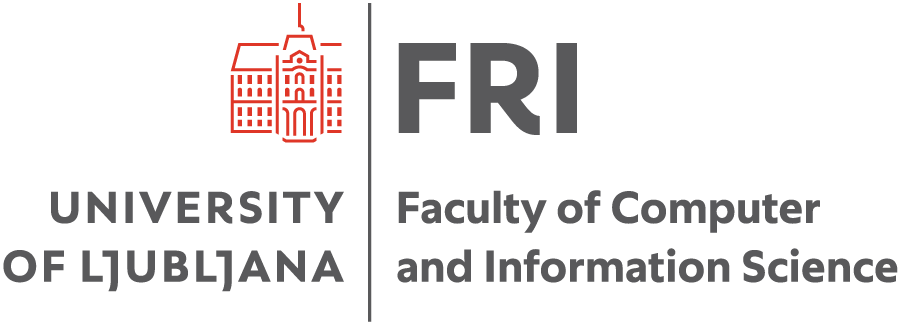- Out of Tune and Into a PhD
In his second-year as an undergraduate student, Ciril Bohak joined the Laboratory of Computer Graphics and Multimedia, and a few years later, after graduating successfully, he found employment in the same lab. At the laboratory he participated in a project created together with the Music Ethnography Institute of the Slovenian Academy of Science and Arts Scientific Research Centre, and contributed to the creation of a digital archive of Slovenian folk songs. In this way he gained an understanding of the field of acquiring information from music, and was able to map out his research path for master’s and doctoral degrees.
Currently Ciril is employed as a teaching assistant for a number of courses, including Programming and Computer Graphics. We talked to him about his work at the Faculty and about his doctoral thesis.
1. What can you tell us about your experience as a doctoral student?
I concluded my studies before the Bologna reforms, so after four and a half years of undergraduate study I first continued with a two-year master of science course. That course differed from the undergraduate course mainly in that there were fewer subjects and more independent seminar work, which involved research related to the master’s thesis topic. After I gained my master’s, I enrolled in doctoral studies. In the doctoral studies at that time there were no course subjects, and all our work was done as part of the research related to the doctoral thesis. The postgraduate courses brought mainly a greater degree of independence and a closer knowledge of research work, which was not familiar to us in the undergraduate course.
2. Your doctoral thesis is entitled Automatic Transcription and Segmentation for Searching the most Representative Work in Vocal Folk Songs. Tell us something about this.
In my doctoral work I developed two methods. The first enables the user to transcribe digital musical recordings of single or multi-voice music. The transcription represents a procedure for creating a sheet-music record from an audio recording.
While many methods have already been developed to address this issue, especially for commercial music, where the recordings are of high quality, with low levels of noise and professional singers, my method differs from the others in that it also works for poor quality recordings (high noise levels), as well as on recordings where performers are out of tune.
With the aim of being able to eliminate “erroneous” notes, I developed the other method, which detects repeating parts in the digital audio recording. And this method, in contrast to previous ones, deals with recordings of poor quality. In this way for the final transcript we use information from all found repetitions of what are melodically the same parts in the recording.
This method has proven to work better than the other methods developed so far. It performed especially well on collections of audio recordings of folk music, where the specific features addressed by the approach developed are especially obvious.
The knowledge acquired in the doctoral thesis work covers mainly the technique of digital processing of signals and analysis of time sequences. This knowledge is also applicable for a range of other areas of analysis.
3. In July as part of the FRI Summer School you are organising a Game Builder workshop, where school pupils can create their own computer games. Why did you decide to organise this workshop? How are the preparations going?
We are holding this particular workshop for the third year running. The basic idea of this kind of workshop is mainly that the school pupils get to know how to develop games, which they are playing increasingly in their free time. And of course a few years ago the games industry overtook the film industry, and the need for adequate, well-qualified personnel is constantly growing (including in Slovenia). In this way we want to inspire secondary school pupils and at the same time help them learn about the techniques and tools used in developing games. Of course you can’t develop a new AAA game in a one-week workshop, but the students can still get a sense of everything you need to develop a game. And importantly, every single student at the workshop develops their own game. Since we are holding this workshop for the third time now, no special preparations are needed, but still we make sure that we are up on the latest trends and in line with this we update certain parts of the programme.
4. What are your plans for the future?
I am not making any long-term plans. Of course in the future I want to experience how the same work is approached elsewhere in the world. I enjoy group work and in this I like to exchange experiences with my co-workers and colleagues. In the long term I want to stay in Slovenia and also at the Faculty, since the working environment is very pleasant and stimulating. In the future I also want to advance to a teaching title and try out the role of a professor.
Enrol in a doctoral study programme. The deadline for applications is 2 June 2017. Apply online via the eVš higher education portal.
